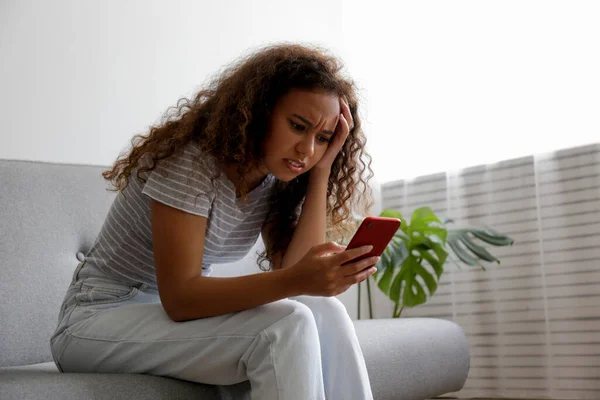Do you ever find yourself scrolling endlessly through social media, only to feel a pang of loneliness sadness or existential crisis? You’re not alone. millions today suffer from social media anxiety and
For many Gen Z and young millennials like you, social media is a double-edged sword. It’s a space where creativity flourishes, connections are forged, and endless streams of information are just a tap away. But beneath the surface lies a darker side—one where the pressure to maintain a flawless online persona and the fear of missing out (FOMO) can take a toll on your mental well-being.
This post is your guide to navigating the social media maze, helping you recognize and manage the anxiety it can stir up. Whether you’re feeling overwhelmed by the pressure to present a picture-perfect life or just curious about the impact of social media on your mental health, you’re in the right place. Let’s dive in and reclaim your peace of mind.
The Roots of Social Media Anxiety
Social media feeds are meticulously crafted highlight reels. Perfectly angled selfies, dream vacations, and seemingly flawless lives—this curated reality bombards Gen Z, creating a distorted perception of normalcy. When you constantly compare yourself to these polished images, it’s easy to feel inadequate. This is where social media anxiety begins to take root.
Related: The Benefits of Deleting Social Media Now!
The filtered reality presented on platforms like Instagram, TikTok, and Snapchat creates a perpetual cycle of comparison. Every like, comment, or follower becomes a measure of self-worth, and the pressure to present an idealized version of yourself can be overwhelming. The more you engage with this content, the more you might feel that your life doesn’t measure up. This anxiety isn’t just about missing out on events or trends; it’s about feeling that you’re not good enough as you are.
This pressure to present a perfect online self takes a significant toll on mental well-being, leading many to experience symptoms of depression, anxiety, and even loneliness. The fear of not being liked or accepted online can drive you to post more, share more, and constantly check your notifications, creating a vicious cycle that’s hard to break.
Breaking Free from Social Media Anxiety
One of the most critical steps in overcoming social media anxiety is acknowledging the curated nature of online content. Recognize that what you see is not a true reflection of reality. People share their best moments, not their struggles. By understanding this, you can begin to free yourself from the need to compare.
Start by taking a close look at the accounts you follow. Do they inspire you, or do they make you feel inadequate? Make an effort to unfollow those that trigger negative emotions. Instead, curate a feed that motivates, uplifts, and brings you joy. Fill your timeline with content that reflects real, diverse experiences, not just the highlights.
Focus on authentic self-expression rather than chasing trends or likes. Share content that genuinely represents who you are, not what you think others want to see. Define success on your own terms, and don’t let the number of likes or followers dictate your self-worth. Celebrate your real-life achievements, whether big or small, and find fulfillment in activities outside the digital world.
Taking Back Control and Reduce Your Screen Time
Social media platforms are designed to keep you engaged as long as possible. The more time you spend scrolling, the more data they collect, and the more ads they can show you. But this constant connection can be mentally exhausting, leading to increased anxiety and stress.
Taking control of your screen time is essential for maintaining your mental health. Start by setting clear boundaries. Schedule specific “social media breaks” throughout your day, and stick to them. This helps you be more intentional about your usage and prevents you from mindlessly scrolling for hours.
Most social media platforms offer tools to help you limit your usage. Take advantage of these features by setting daily limits or using apps that track your screen time. By reducing the time you spend on these platforms, you create space for real-life interactions that are more fulfilling and less anxiety-inducing.
Engage in hobbies, spend time with friends and family, or simply enjoy being present in the moment without the distraction of your phone. These activities can help reduce the urge to constantly check your social media and improve your overall well-being.
Prioritizing Privacy and Setting Boundaries
In the digital age, privacy is becoming increasingly important. Social media is intrusive, often encouraging users to share more than they might feel comfortable with. But you don’t have to document every aspect of your life.
Be selective about what you share online. Not everything needs to be posted or shared with the world. Utilize privacy settings to control who can see your posts and personal information. This can help protect your mental health by reducing the pressure to constantly update your followers on every detail of your life.
Don’t be afraid to mute or unfollow accounts that bring negativity into your feed. Remember, you are in control of your online experience. Curate a digital space where you feel safe, comfortable, and true to yourself. Your mental well-being should always come first, and setting boundaries is a crucial part of maintaining that balance.
Finding Your Tribe: Building Positive Connections
While social media can contribute to anxiety, it can also be a powerful tool for connection. Use it to join communities and groups that share your interests and values. Engaging in meaningful conversations and building positive connections can help combat feelings of isolation and provide a sense of belonging.
Look for accounts and communities that promote positivity, self-care, and mental health awareness. These spaces can offer support and encouragement when you need it most. Surrounding yourself with like-minded individuals online can create a network of support that’s invaluable, especially when navigating the challenges of mental health.
Finding your tribe online can make a significant difference in how you perceive and use social media. It transforms the experience from one of competition and comparison to one of support and connection.
How to Embrace and Celebrate Your Imperfections
Social media thrives on manufactured perfection. But the truth is, your imperfections are what make you unique and relatable. Embracing authenticity online can be incredibly liberating.
When you share real, unfiltered experiences—including your struggles and vulnerabilities—you open the door for genuine connections. You may find that others appreciate your honesty and relate to your experiences, fostering a more authentic online environment for everyone.
Express yourself genuinely, and don’t shy away from sharing the parts of your life that aren’t picture-perfect. Your authenticity can inspire others to do the same, creating a ripple effect that promotes a more honest and supportive social media culture.
Beyond the Screen: Fostering Real-Life Connections
Social media is just one aspect of life. While it can be a tool for connection and self-expression, it should never replace real-life relationships. Disconnect to reconnect with the world around you.
Cultivate strong, meaningful relationships with the people in your life. Spend quality time with friends and family who appreciate you for who you are, not your online persona. Engage in activities that bring you joy and fulfillment outside the digital sphere.
Real-life connections provide a sense of belonging and support that social media simply can’t replicate. They offer genuine interaction, emotional support, and a deeper level of connection that goes beyond what can be conveyed through a screen.
Seeking Help, It’s Okay to Not Be Okay
Social media anxiety can sometimes become overwhelming. If you find that it’s impacting your daily life, it’s essential to seek help. Talking to a trusted friend, family member, or therapist can make a significant difference.
There are also online resources and helplines specifically designed to support mental health concerns, including social media addiction, stress management, and anxiety. Remember, seeking help is a sign of strength, not weakness. Taking care of your mental health is the most important thing you can do.
Conclusion: A More Mindful Digital Experience
Overcoming social media anxiety is an ongoing process. By taking control of your online experience, prioritizing real-life connections, and embracing authenticity, you can navigate the digital world with greater calmness and confidence.



